SECTION XXXII
"Draupadi said, 'I do not ever disregard or slander religion, O son of Pritha! Why should I disregard God, the lord of all creatures? Afflicted with woe, know me, O Bharata, to be only raving I will once more indulge in lamentations; listen to me with attention O persecutor of all enemies, every conscious creature should certainly act in this world. It is only the immobile, and not other creatures, that may live without acting. The calf, immediately after its birth, sucketh the mothers' teat. Persons feel pain in consequence of incantations performed with their statues. It seemeth, therefore, O Yudhishthira, that creatures derive the character of their lives from their acts of former lives. Amongst mobile creatures man differeth in this respect that he aspireth, O bull of the Bharata race, to affect his course of life in this and the other world by means of his acts. Impelled by the inspiration of a former life, all creatures visibly (reap) in this world the fruits of their acts. Indeed, all creatures live according to the inspiration of a former life, even the Creator and the Ordainer of the universe, like a crane that liveth on the water (untaught by any one.) If a creature acteth not, its course of life is impossible. In the case of a creature, therefore, there must be action and not inaction. Thou also shouldest act, and not incur censure by abandoning action. Cover thyself up, as with an armour, with action. There may or may not be even one in a thousand who truly knoweth the utility of acts or work. One must act for protecting as also increasing his wealth; for if without seeking to earn, one continueth to only spend, his wealth, even if it were a hoard huge as Himavat, would soon be exhausted. All the creatures in the world would have been exterminated, if there were no action. If also acts bore no fruits, creatures would never have multiplied. It is even seen that creatures sometimes perform acts that have no fruits, for without acts the course of life itself would be impossible. Those persons in the world who
p. 68
believe in destiny, and those again who believe in chance, are both the worst among men. Those only that believe in the efficacy of acts are laudable. He that lieth at ease, without activity, believing in destiny alone, is soon destroyed like an unburnt earthen pot in water. So also he that believeth in chance, i.e., sitteth inactive though capable of activity liveth not long, for his life is one of weakness and helplessness. If any person accidentally acquireth any wealth, it is said he deriveth it from chance, for no one's effort hath brought about the result. And, O son of Pritha, whatever of good fortune a person obtaineth in consequence of religious rites, that is called providential. The fruit, however that a person obtaineth by acting himself, and which is the direct result of those acts of his, is regarded as proof of personal ability. And, O best of men, know that the wealth one obtaineth spontaneously and without cause is said to be a spontaneous acquisition. Whatever is thus obtained by chance, by providential dispensation, spontaneously, of as the result of one's acts is, however, the consequence of the acts of a former life. And God, the Ordainer of the universe, judging according to the acts of former lives, distributeth among men their portions in this world. Whatever acts, good or bad, a person performeth, know that they are the result of God's, arrangements agreeably to the acts of a former life. This body is only the instruments in the hands of God, for doing the acts that are done. Itself, inert, it doth as God urgeth it to do. O son of Kunti, it is the Supreme Lord of all who maketh all creatures do what they do. The creatures themselves are inert. O hero, man, having first settled some purpose in his mind, accomplisheth it, himself working with the aid of his intelligence. We, therefore, say that man is himself the cause (of what he doeth). O bull among men, it is impossible to number the acts of men, for mansions and towns are the result of man's acts. Intelligent men know, by help of their intellect, that oil may be had from sesame, curds from milk, and that food may be cooked by means of igniting fuel. They know also the means for accomplishing all these. And knowing them, they afterwards set themselves, with proper appliances, to accomplish them. And creatures support their lives by the results achieved in these directions by their own acts. If a work is executed by a skilled workman, it is executed well. From differences (in characteristics), another work may be said to be that of an unskilful hand. If a person were not, in the matter of his acts, himself the cause thereof, then sacrifices would not bear any fruits in his case nor would any body be a disciple or a master. It is because a person is himself the cause of his work that he is applauded when he achieved success. So the doer is censured if he faileth. If a man were not himself the cause of his acts, how would all this be justified? Some say that everything is the result of Providential dispensation; others again, that this is not so, but that everything which is supposed to be the
p. 69
result of destiny or chance is the result of the good or the bad acts of former lives. It is seen, possessions are obtained from chance, as also from destiny Something being from destiny and something from chance, something is obtained by exertion. In the acquisition of his objects, there is no fourth cause in the case of man. Thus say those that are acquainted with truth and skilled in knowledge. If, however, God himself were not the giver of good and bad fruits, then amongst creatures there would not be any that was miserable. If the effect of former acts be a myth, then all purposes for which man would work should be successful. They, therefore, that regard the three alone (mentioned above) as the doors of all success and failure in the world, (without regarding the acts of former life), are dull and inert like the body itself. For all this, however, a person should act. This is the conclusion of Manu himself. The person that doth not act, certainly succumbeth, O Yudhishthira. The man of action in this world generally meeteth with success. The idle, however, never achieveth success. If success, becometh impossible, then should one seek to remove the difficulties that bar his way to success. And, O king, if a person worketh (hard), his debt (to the gods) is cancelled (whether he achieveth success or not). The person that is idle and lieth at his length, is overcome by adversity; while he that is active and skillful is sure to reap success and enjoy prosperity. Intelligent persons engaged in acts with confidence in themselves regard all who are diffident as doubting and unsuccessful. The confident and faithful, however, are regarded by them as successful. And this moment misery hath overtaken us. If, however, thou betakest to action, that misery will certainly be removed. If thou meetest failure, then that will furnish a proof unto thee and Vrikodara and Vivatsu and the twins (that ye are unable to snatch the kingdom from the foe). The acts of others, it is seen, are crowned with success. It is probable that ours also will be successful. How can one know beforehand what the consequence will be? Having exerted thyself thou wilt know what the fruit of thy exertion will be. The tiller tilleth with the plough the soil and soweth the seeds thereon. He then sitteth silent, for the clouds (after that) are the cause that would help the seeds to grow into plants. If however, the clouds favour him not, the tiller is absolved from all blame. He sayeth unto himself, 'What others do, I have done. If, notwithstanding this, I meet with failure, no blame can attach to me.' Thinking so, he containeth himself and never indulgeth in self-reproach. O Bharata, no one should despair saying, 'Oh, I am acting, yet success is not mine! For there are two other causes, besides exertion, towards success. Whether there be success or failure, there should be no despair, for success in acts dependeth upon the union; of many circumstances. If one important element is wanting, success doth not become commensurate, or doth not come at all. If however, no exertion is made, there can be no success. Nor is there anything to applaud in the absence of all exertion. The
p. 70
intelligent, aided by their intelligence, and according to their full might bring place, time, means, auspicious rites, for the acquisition of prosperity. With carefulness and vigilance should one set himself to work, his chief guide being his prowess. In the union of qualities necessary for success in work, prowess seemeth to be the chief. When the man of intelligence seeth his enemy superior to him in many qualities, he should seek the accomplishment of his purposes by means, of the arts of conciliation and proper appliances. He should also wish evil unto his foe and his banishment. Without speaking of mortal man, if his foe were even the ocean or the hills, he should be guided by such motives. A person by his activity in searching for the holes of his enemies, dischargeth his debt to himself as also to his friends. No man should ever disparage himself for the man that disparageth himself never earneth high prosperity. O Bharata, success in this world is attainable on such conditions! In fact, success in the World is said to depend on acting according to time and circumstances. My father formerly kept a learned Brahmana with him. O bull of the Bharata race, he said all this unto my father. Indeed, these instructions as to duty, uttered by Vrihaspati himself, were first taught to my brothers. It was from them that I heard these afterwards while in my father's house. And, O Yudhishthira, while at intervals of business, I went out (of the inner apartments) and sat on the lap of my father, that learned Brahmana used to recite unto me these truths, sweetly consoling me therewith!"


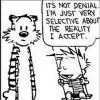















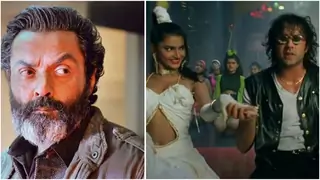

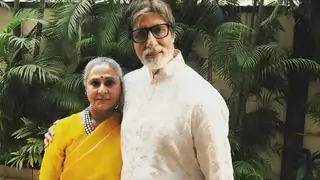

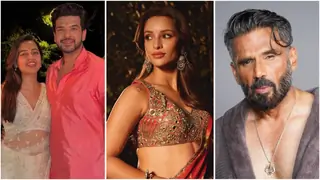

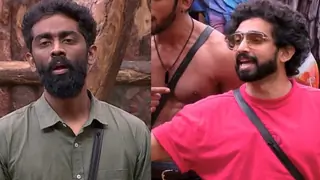




1k